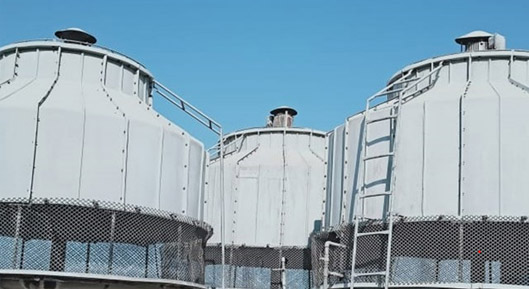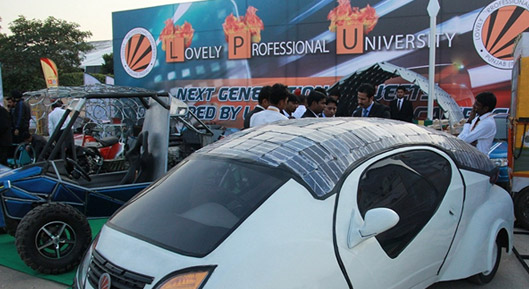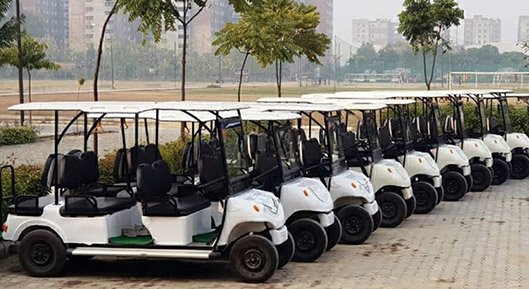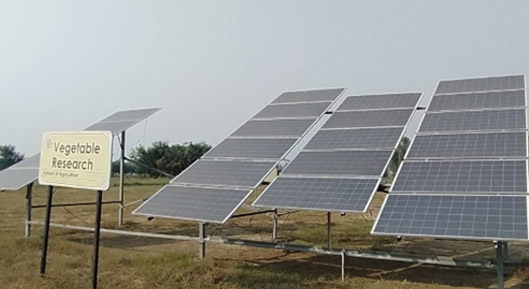LPU is committed to clean energy deployment, academic programmes, research, professional training, and consulting in the areas of renewable energy, energy-efficient buildings, energy conservation, and sustainability management. The university has a 7.5 MW solar power plant and an energy performance index of 33.42 kWh/m2/year. The consumption is much lower than a 5-star rated building as per Bureau of Energy Efficiency, Government of India
ACADEMIC INITIATIVES
Through research, teaching, operational practices, and capacity building, Lovely Professional University is dedicated to resource conservation and sustainability. As a result, 115 courses for undergraduate, postgraduate, and research studies programmes have been embedded by the university. More than 8000 students are the beneficiary of these courses/programs. The prime objective for the designed courses is to build up the understanding for clean and affordable energy and to help the nation and globally to meet the future requirements of United Nations development goals. A few major courses of the University are Solar energy technology, Renewable energy and green technology, Renewable Energy, Wind and solar energy systems, Workshop and design of solar systems, Energy conservation for electrical engineering, Non-conventional energy resources, Non-conventional energy sources and energy auditing, Energy Conservation, New and Emerging Technologies, Energy-efficient Building Design Strategies; Sustainable Development and the Livelihood, and Clean Fuel etc.
The courses on green economy and sustainability namely ‘Renewable Energy Systems’, ‘Sustainability Ecology and Landscape’ and ‘Sustainability and Energy Efficiency’ have been incorporated in the curriculum of undergraduate programs wherein live project is an integral component of these courses respectively. School of Bioengineering and Biosciences has created an interdisciplinary team of UG & PG students working on green economy aiming sustainability development by extracting the value products from lignocellulosic waste and evaluating their potential in various applications such as antimicrobials. Further, the enzyme study to degrade the lignocellulosic biomass for biofuel production is also in progress.
Lovely Professional University is committed to increased use of clean energy sources and is already undertaking various small-scale sustainable power projects and promoting green energy heavily.
Lovely Professional University is devoted to increasing the usage of clean energy sources and is now working on a number of small-scale sustainable power projects as well as extensively promoting green energy.
Solar Power Plant
The University’s commitment to guidelines contributes to the United Nations’ sustainable development goals, and it’s worth noting that in 2018, the University erected a 1.1 MW rooftop solar PV plant. Currently, 7.5 MW of Solar power plant is installed in the university. With these initiatives, Not only has the university lowered the total power use from the conventional resources, but it has also boosted the university’s renewable generation. In the year 2022, the combined emissions from scope 1 and scope 2 amount to nearly 3730 tonnes of CO2 equivalent for the 2021-22 session.
Energy Efficient Building
In an era of smart cities, sustainable buildings and contemporary interiors, University designed an energy-efficient building with specialized architects. They have also trained our students to become lateral thinkers by focusing on the critical design approach. With exposure to an international environment, access to the latest tools, software’s and technology, our students also become architects that create buildings and infrastructure that are globally acknowledged. Due to the incorporation of energy-efficient building strategies, the energy consumption density of the LPU buildings is much lower than a 5-star rated building by Bureau of Energy Efficiency, Government of India.
Green transportation
Solar power bus and battery-operated e-rickshaw in the campus are operating since 2017. 22 e-rickshaws service connecting its major buildings, departments, hostels for students and faculty members. Nearly 100 Km mileage is giving by each e-rickshaw. In this way, the university strives to combat the detrimental carbon-emitting conventional fuel vehicles and helping towards the improvement of air quality at the micro-level.
Solar Irrigation System
The University installed three solar-powered irrigation systems and also used in lawns , gardens for watering the plants. Each unit has a five- horsepower capacity. These motors are used in drip irrigation systems to irrigate orchards. This system is extremely efficient in terms of reducing water loss and making efficient use of energy and water resources.
Biogas plant
Organic waste can be collected and used to make biogas, a renewable source of energy, to minimize greenhouse gas emissions and the danger of pollution to rivers. Biogas is made up of about 50% to 70% methane, 30% to 40% carbon dioxide, and trace amounts of other gases In this regard, the University has three 3-cubic-meter biogas systems in operation across campus which processes and treats kitchen waste.
Centralized Chiller Plant
The University replaced split and window air conditioners in administrative buildings with a 265 TR centralized chiller water-based cooling system. When compared to conventional air conditioners, the new system uses 40% less electricity. The university has a strategy for lowering energy usage by scheduling the running duration of air conditioning devices during the day and during peak summer months.
Future Plans 2029
The objectives for the green campus have been framed for the vision of 2029 aligned with the national and international guidelines. The 2029 Vision of University states that “By 2029, we must transform the university into the green and sustainable campus”.
- Key Performance Indicators (KPIs) to measure the performance for the vision “2029”
- Reduction the use of conventional energy resources by 30%.
- Identification of high energy consumption zones.
- Follow the national/international standards in building infrastructure and use of electric gadgets.
- Updation of existing infrastructure into the energy-efficient green buildings.
- Enhanced value creation through optimized material flows and waste management.
- Identification of essential and non-essential operation
- Promotion of 100% technology-driven green commuting system within the campus.
- Efficient management and conservation of water resources by 25%.
- Implementation of water recycling techniques including dissolved air flotation, biological treatment, granular activated carbon, softening, disinfection, deionization and filtration etc.
- Training and awareness for the utilization of recyclable materials and waste management
- Biodiversity, habitats and cultural heritage - conservation for current and future generations.
- Collaboration with NGOs, guidelines organisations and research organisations to explore the dynamics, issues and logistics of developing green and sustainable energy sources.
- Sensitization of students, staffs and local community by conducting regular outreach and awareness programs.
- Establishment of CoE in the area of Clean Energy.
- Promotion of collaborative research with industries related to the energy sector to develop more efficient renewable energy production system.
- Creepers vertical greening strategies for saving energy and reduction of urban heat island effects.
Contribution
100+
AcademicCourses
7500KW
SolarPower
8000+
studentsbenefited
33
Energy Density(kWh/Sq.m/yr)







